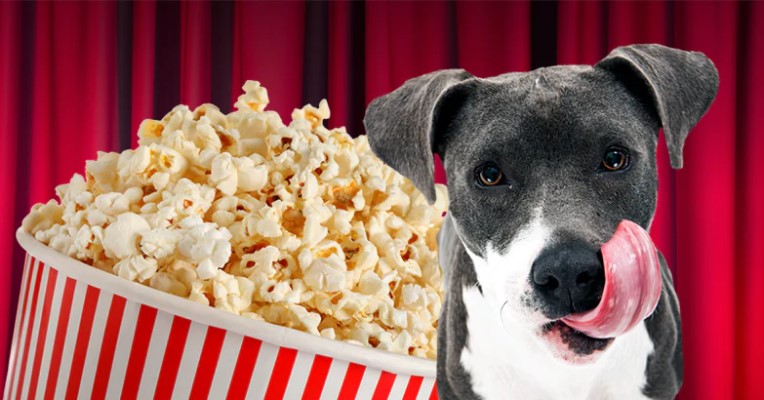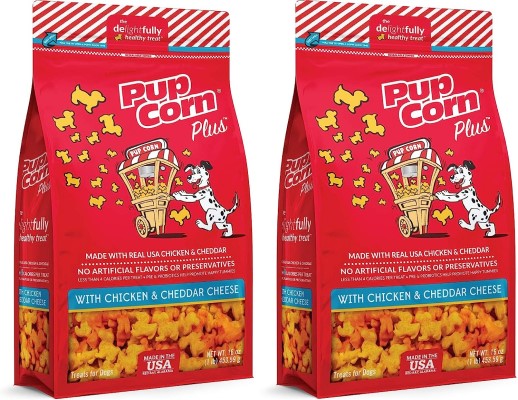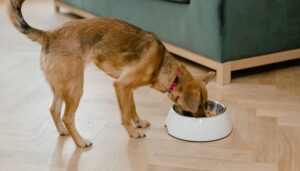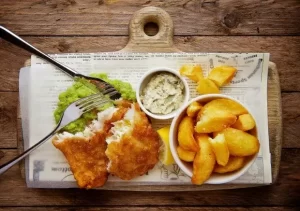
When you settle down for a movie night with a big bowl of popcorn, your furry friend may give you those adorable puppy eyes, hoping to snag a piece. But as a responsible pet owner, you may wonder, “Can my dog eat popcorn?” In this article, we will explore the safety and potential risks associated with feeding popcorn to dogs. So, grab a cup of coffee and let’s dive into the fascinating world of popcorn and our four-legged companions.
Is Popcorn Safe for Dogs?
The answer to whether dogs can eat popcorn is not as straightforward as you might think. While plain, air-popped popcorn is generally safe for dogs to consume in moderation, there are a few factors to consider before sharing this popular snack with your furry friend.
Popcorn Preparation
The way popcorn is prepared significantly impacts its safety for dogs. Unsalted, unbuttered, and air-popped popcorn is the best option for your canine companion. Avoid using any toppings, such as salt, butter, cheese, or seasonings, as these additions can be harmful to dogs. Artificial flavorings and preservatives found in microwave popcorn can also be potentially toxic to dogs.
Potential Choking Hazard
Popcorn kernels pose a choking hazard for dogs, especially smaller breeds or those prone to dental issues. The hard and crunchy texture of unpopped kernels can easily get stuck in a dog’s throat or cause damage to their teeth. To prevent choking or dental injuries, it is essential to ensure that the popcorn is fully popped and there are no unpopped kernels in the bowl.
While popcorn itself is not toxic to dogs, certain aspects of it can pose risks to their health and well-being. Here are some things to avoid when offering popcorn to your furry friend:
- Salt and Seasonings: Popcorn flavored with salt, butter, or other seasonings can be harmful to dogs. Excessive salt intake can lead to sodium ion poisoning, and some seasonings, like garlic or onion powder, can be toxic to dogs. Stick to plain popcorn without any added flavorings.
- Unpopped Kernels: Unpopped popcorn kernels can be a choking hazard for dogs, especially those with smaller mouths or dental issues. Ensure that the popcorn is fully popped and that there are no hard kernels remaining before sharing it with your dog.
Allergic Reactions
Some dogs may be allergic to corn or have sensitivities to certain ingredients found in popcorn. If your dog has never consumed corn before, it’s best to introduce it gradually and monitor for any signs of allergic reactions, such as itching, rashes, gastrointestinal upset, or difficulty breathing. If any adverse reactions occur, discontinue feeding popcorn and consult your veterinarian.
Moderation is Key
While it’s generally safe for dogs to eat popcorn, it should be given in moderation. Too much popcorn can lead to an upset stomach, digestive issues, or even potential blockages in the intestines. Treat popcorn as an occasional snack and avoid making it a significant part of your dog’s diet.
The Benefits of Popcorn for Dogs
While popcorn should be given to dogs in moderation, it does offer some potential benefits when prepared correctly and fed as an occasional treat.
Fiber Content
Air-popped popcorn contains dietary fiber, which can aid in digestion and promote bowel regularity in dogs. However, it’s important to note that excessive fiber intake can lead to gastrointestinal upset, so moderation is key.
Mental Stimulation
The act of chewing on popcorn can provide mental stimulation for dogs. The sound and texture of the popped kernels may entertain your furry friend and keep them engaged.
Low-Calorie Option
Compared to many other common snacks, plain, air-popped popcorn is relatively low in calories. This makes it a healthier alternative for dogs when compared to treats high in fat or sugar.
Does Popcorn Upset a Dog’s Stomach?
In some cases, popcorn can indeed upset a dog’s stomach. Dogs have different sensitivities and digestive systems compared to humans, so what may be fine for us can cause discomfort for them. Some dogs may have difficulty digesting popcorn, leading to symptoms such as:
- Upset stomach
- Diarrhea
- Vomiting
- Gas or bloating
If you notice any of these symptoms after your dog consumes popcorn, it’s best to avoid giving it to them in the future. Every dog is unique, and what works for one may not work for another.
Risks and Precautions
Although popcorn can be enjoyed by some dogs, there are risks and precautions to keep in mind to ensure your furry friend’s safety.
Salt and Seasonings
Popcorn toppings like salt, sugar, and various seasonings are not suitable for dogs. Excessive salt intake can lead to sodium ion poisoning, which can be life-threatening. Seasonings like garlic, onion, or spices may cause gastrointestinal upset or even toxicity in dogs. Always opt for plain, unsalted popcorn for your furry friend.
Size and Breed Considerations
Smaller dog breeds or those with dental issues are at a higher risk of choking on popcorn kernels or damaging their teeth. If you have a small dog, consider avoiding popcorn altogether or ensuring it is well-popped and kernel-free before sharing it with them.
Portion Control
Remember that moderation is key when it comes to feeding popcorn to your dog. While an occasional piece or two may be fine for most dogs, excessive consumption can lead to digestive issues, such as stomach upset or diarrhea. Stick to small portions and avoid making popcorn a regular part of your dog’s diet.
Things To Avoid In Popcorn For Dogs
Popcorn can be a tempting treat to share with your furry friend, but it’s important to be aware of potential hazards that certain ingredients or preparations may pose to dogs. Here are some things to avoid when it comes to popcorn for dogs:
1. Salt
Salted popcorn is a popular choice among humans, but it’s best to avoid giving salted popcorn to dogs. Excessive salt intake can lead to sodium ion poisoning, which can cause dehydration, increased thirst, and even organ damage in severe cases. Opt for plain, unsalted popcorn instead.
2. Butter and Oils
Buttered or oily popcorn should also be avoided for dogs. Butter and oils used in popcorn preparation can be high in fat and contribute to weight gain and pancreatitis in dogs. Stick to air-popped popcorn without any added butter or oils.
3. Seasonings and Flavorings
Popcorn flavorings such as cheese, caramel, or spices should not be given to dogs. Many seasonings and flavorings contain ingredients that can be harmful to dogs, including artificial additives, onions, garlic, or certain spices. These substances can cause digestive upset, toxicity, or allergic reactions in dogs.
4. Unpopped Kernels
Unpopped popcorn kernels are a potential choking hazard for dogs. These hard kernels can get lodged in a dog’s throat or cause dental damage. Ensure that the popcorn is fully popped before offering it to your dog to prevent any choking incidents.
5. Microwave Popcorn
Microwave popcorn often contains artificial flavorings, preservatives, and added butter or salt. These additives can be harmful to dogs, so it’s best to avoid feeding them microwave popcorn altogether. Stick to air-popped popcorn prepared specifically for dogs if you’re looking for a popcorn treat.
Remember, the health and safety of your furry friend should always come first. When sharing snacks with your dog, it’s important to choose options that are safe and suitable for their dietary needs. By avoiding these potential hazards in popcorn, you can ensure that your canine companion enjoys their treats without any adverse effects.
Triumph Pet Industries 2 Pack of PupCorn Plus Chicken and Cheddar Dog Treats Reviews
The Triumph Pet Industries 2 Pack of PupCorn Plus Chicken and Cheddar Dog Treats has garnered immense popularity among dog owners. Let’s delve into the various aspects of these treats that make them a favorite choice for many pet parents.
The Irresistible Combination of Chicken and Cheddar
One of the reasons why the Triumph Pet Industries 2 Pack of PupCorn Plus Chicken and Cheddar Dog Treats stands out is its delicious flavor combination. Dogs absolutely love the taste of chicken and cheddar, making these treats highly enticing for even the pickiest eaters. The savory blend of real chicken and cheddar cheese creates a mouthwatering treat that will leave your furry friend begging for more.
Premium Ingredients for Optimal Nutrition
Triumph Pet Industries prioritizes the health and well-being of dogs. That’s why the 2 Pack of PupCorn Plus Chicken and Cheddar Dog Treats is made with high-quality ingredients. Each treat is crafted using real chicken, cheddar cheese, and wholesome grains. These treats are free from artificial flavors, colors, and preservatives, ensuring that your furry friend receives optimal nutrition.
Nutritional Benefits for Dogs
Apart from being incredibly tasty, the Triumph Pet Industries 2 Pack of PupCorn Plus Chicken and Cheddar Dog Treats offer numerous health benefits. These treats are packed with protein from real chicken, which supports muscle development and repair. Additionally, the cheddar cheese provides a good source of calcium, promoting strong bones and teeth. With the inclusion of wholesome grains, these treats offer a balanced snack option for dogs of all sizes and breeds.
Frequently Asked Questions (FAQs)
Q1: Can dogs eat buttered popcorn?
It is best to avoid giving dogs buttered popcorn. Butter contains high levels of fat, which can lead to pancreatitis or obesity in dogs. Stick to plain, air-popped popcorn for your furry friend.
Q2: Is microwave popcorn safe for dogs?
Microwave popcorn often contains artificial flavorings, preservatives, and added butter or salt, making it unsuitable for dogs. Opt for air-popped popcorn instead.
Q3: Can dogs eat flavored popcorn?
Flavored popcorn, such as cheese, caramel, or spicy varieties, should be avoided. These flavors often contain ingredients that can be harmful to dogs, including artificial additives and seasonings.
Q4: Can dogs eat popcorn chicken?
Popcorn chicken typically refers to breaded and fried chicken pieces. While some dogs may be able to tolerate small amounts of cooked, unseasoned chicken, it’s best to avoid breaded or fried options due to the added fats and potential seasoning.
Q5: How should I introduce popcorn to my dog?
If you decide to introduce popcorn to your dog, start with a small piece and observe their reaction. Monitor for any signs of allergies or digestive upset. If your dog shows no adverse reactions, you can offer small, plain, air-popped popcorn as an occasional treat.
Conclusion
In conclusion, while popcorn can be a tasty snack for humans, it should be consumed by dogs with caution. Plain, air-popped popcorn in moderation can be safe for dogs, but it is essential to avoid toppings like butter, salt, and seasonings. Always prioritize your dog’s safety and consider any potential allergies, choking hazards, or breed-specific risks.
Remember, when it comes to treats for your furry friend, there are plenty of dog-friendly options available that are specifically formulated for their nutritional needs. If you have any concerns or questions about your dog’s diet, consult your veterinarian for professional advice.








